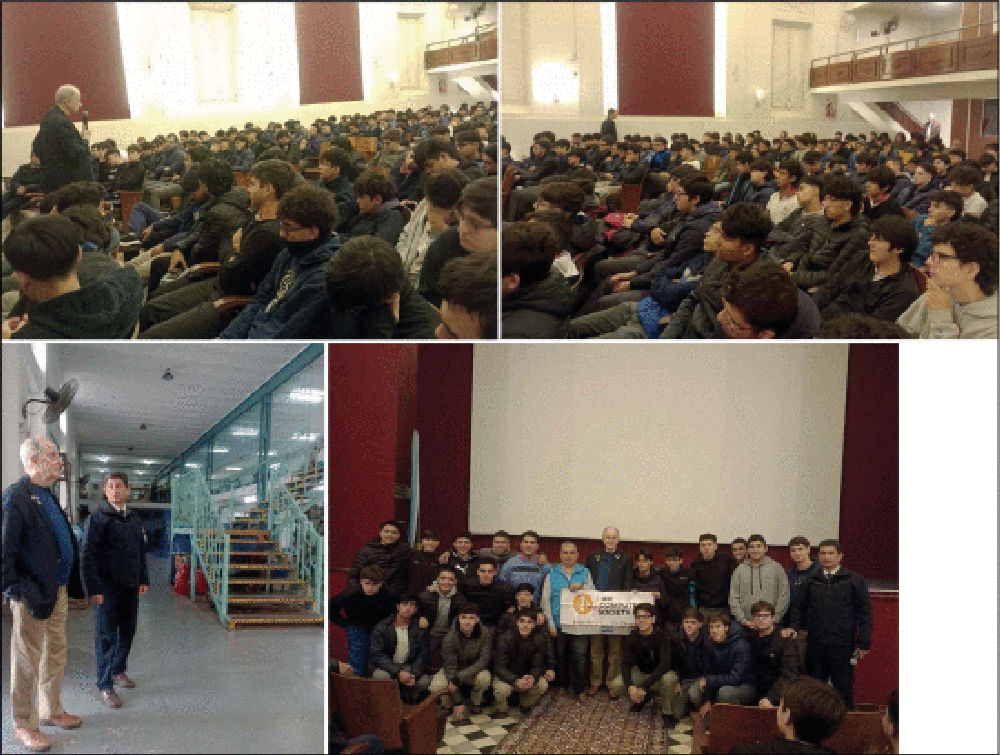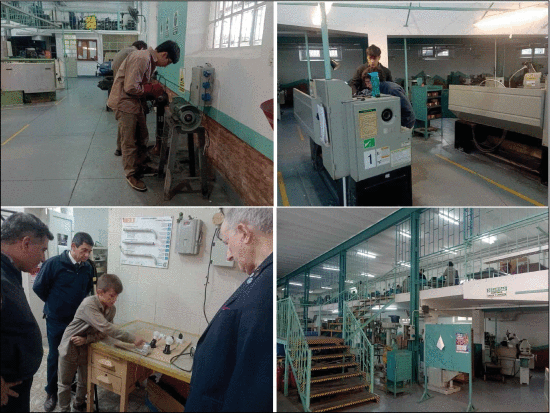 Figure 1. Students listening to Dr. Kun’s motivational talk and visiting, students’ facilities at the Instituto Técnico Salesiano Lorenzo Massa, Tucuman, Argentina, June 2023. Photos provided by Milton Marche.
Figure 1. Students listening to Dr. Kun’s motivational talk and visiting, students’ facilities at the Instituto Técnico Salesiano Lorenzo Massa, Tucuman, Argentina, June 2023. Photos provided by Milton Marche. As I travel around the world, I listen to older generations complain that their children do not go out of their homes and play outside. Instead, youngsters go to their rooms and “play” with their phones and computers. Already, many even prefer avoiding school and taking their courses online.
I believe that the most important component of our life is our education, at school, at home, and elsewhere. Everything that we come across during our formative years ends up impacting everything else: employment, income, the quality of what we eat and can afford, where we live, physical and mental health, and even the relations we establish with others. We are exposed to a microcosm of the world, where you have all types of individuals that range from the absolutely nice to bullies and everything in between. During those early years, however, our focus and principal objective might be playing, and where: religion, the color of the skin, different cultures, different sex, different political party affiliations are probably irrelevant in our eyes. It is also an opportunity to develop long-lasting relationships that may last a lifetime. We learn that despite our differences, we can get along by respecting each other. As new technologies keep appearing, what can elder generations do to balance those technologies with the social development of the youth?
I hear older generations complain that their children do not go out of their homes and play outside.
I received my primary and secondary education in Montevideo, Uruguay. In 10 out of those 12 years, I was never able to choose a single course or classmates. We all got the same education and had the same classmates. In addition to our regular classes, we played sports together, every time we had an opportunity. As we became teenagers, we had parties every Saturday and we learned to dance together. We also collected clothes and food for the poor, and we visited and helped different communities with disabilities such as the blind. Back in school, we also learned how to cook, typing, and carpentry.
In the United States, once I had my own kids, I was exposed to a system where after the first six years (i.e., in middle school), you start choosing what you believe you will like but are unable to receive a complete education where all subjects are covered. As important, those early “social” relations are cut suddenly and lost. Very rarely will you share a class with someone from your recent past.
If we had a system in the United States where 50% of the time was dedicated to a single academic program for everyone, and the other 50% to social development, society would reap the benefits. Imagine teaching kids about diet and nutrition (while getting rid of certain foods in the school cafeterias), about the importance of exercising, and teaching them techniques to deal with stress, all while keeping the same classmates through those formative years.
If we had a system in the United States where 50% of the time was dedicated to a single academic program for everyone, and the other 50% to social development, society would reap the benefits.
In June 2023, I went to Tucuman, Argentina, invited by the National Technical University of Tucuman through the IEEE Computer Society, to give a keynote address to celebrate “Engineer’s Week.” Among the planned activities before that talk, I was also invited to give a motivational talk to about 300 preuniversity students at the Instituto Técnico Salesiano Lorenzo Massa (Figure 1). Milton Marche was the local IEEE organizer and coordinator for these activities. The topics included the social implications of technology, the impact of a career in science, technology, and math, and also the benefits of volunteering. After my talk, I saw the students working in teams, learning and working with tools, as part of their schooling (Figure 2). They got engaged in sports and many other social activities involving constant human interactions. What a great model for us to follow in the 21st century.
Figure 2.Visiting student’s facilities at the Instituto Técnico Salesiano Lorenzo Massa, Tucuman, Argentina, June 2023. Photos provided by Luis Kun and Milton Marche.
Author Information
Luis Kun is the president of the IEEE Society on Social Implications of Technology, 2023–2024. He is a distinguished professor emeritus with William J. Perry Center for Hemispheric Defense Studies, National Defense University, Washington, DC 20319 USA. Email: l.kun@ieee.org.
____________
To view the original published version of this article, click HERE.
________







 JOIN SSIT
JOIN SSIT